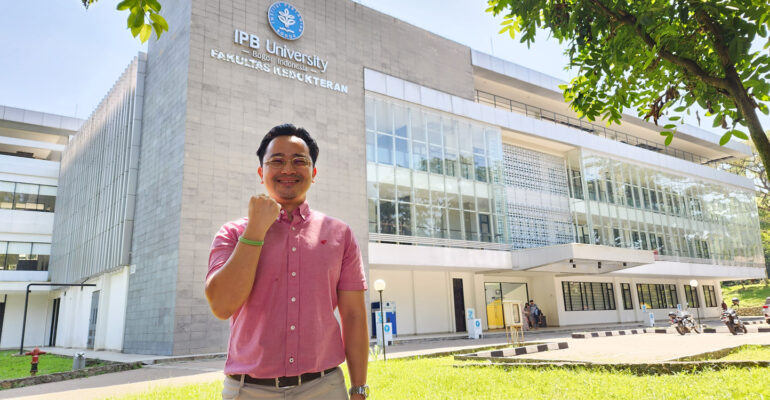Revealing Five Factors of Fatigue During Mudik, IPB University Lecturer Offers Anti-Aging Medicine Approach Solutions

Mudik, the annual tradition of returning home for eid in Indonesia, often involves long-distance travel that presents its own set of challenges, such as extreme fatigue or jetlag—especially for those traveling across time zones.
If not properly anticipated, these conditions can lead to health issues like oxidative stress, accelerated cellular aging, and weakened immunity.
Dr Samuel Stemi, a lecturer at the Faculty of Medicine at IPB University and an anti-aging medicine practitioner, revealed that fatigue during mudik can be caused by several key factors.
1. Lack of Sleep
The first factor is lack of sleep. Preparation for mudik is often done in a short amount of time, reducing sleep hours. As a result, the body may not be in optimal condition before departure.
“It’s best to start preparing for mudik at least a week before,” advised Dr. Samuel.
2. Long Travel Duration
The second factor is the long travel duration. Dr Samuel explained that sitting for extended periods can lead to muscle tension or stiffness, poor blood circulation, and even increase the risk of blood clots.
“Recent studies show that microstretching, such as moving your ankles, rotating your shoulders, or light muscle contractions, can help improve blood flow,” he noted.
3. Dehydration
The third factor contributing to fatigue is dehydration. According to Dr Samuel, insufficient fluid intake during the journey can lower energy levels and cause headaches.
“Make sure to drink at least eight glasses of water daily, both before and during your trip,” he recommended.
4. Poor Diet
The fourth factor is unhealthy eating habits. Dr Samuel mentioned that consuming foods high in sugar or fat can cause energy spikes and crashes.
“To avoid this, choose complex carbohydrates like oatmeal, boiled sweet potatoes, potatoes, and high-quality proteins such as boiled eggs, almonds, walnuts, or edamame,” he advised.
During long journeys, he added, the body also experiences an increase in free radicals that accelerate aging.
“For those who take supplements, I recommend astaxanthin, as it is 6.000 times stronger than vitamin C in combating free radicals,” he said.
5. Stress
The fifth factor causing fatigue is stress. Dr Samuel pointed out that traffic jams and crowded public transportation can trigger discomfort and insecurity.
“From the start, try to choose reliable transportation options. Also, wear comfortable clothing that is not too tight around the chest and abdomen, so it doesn’t restrict normal breathing and lung air exchange,” he explained.
Anti-Aging Medicine to Combat Jetlag
For those traveling across time zones, jetlag can be a challenge. Jetlag occurs when the body feels tired, disoriented, and uncomfortable due to rapid time zone changes during air travel.
To avoid jetlag, Dr Samuel recommended consuming foods rich in natural melatonin, such as salmon, cherries, bananas, and almonds. Melatonin is a hormone produced to regulate sleep-wake cycles.
“If necessary, you can take a low-dose oral melatonin supplement (1-3 mg), taken during the trip, just before the sleep time based on the destination’s time zone,” he suggested.
In addition to supplements, diaphragmatic breathing exercises are believed to help the body adapt more quickly to the new time zone.
“One of the latest methods in anti-aging is diaphragmatic breathing to reduce stress hormone (cortisol) levels and improve cellular oxygenation,” he explained.
Dr Samuel further added that techniques like 4-7-8 breathing (inhale for 4 seconds, hold for 7 seconds, exhale slowly for 8 seconds) have been proven to effectively improve sleep quality and speed up the body’s adaptation to a new time zone.
“By understanding how the body works and applying anti-aging strategies, we can reduce fatigue and jetlag, allowing us to enjoy family time in optimal condition,” he concluded. (IAAS/RWA)



